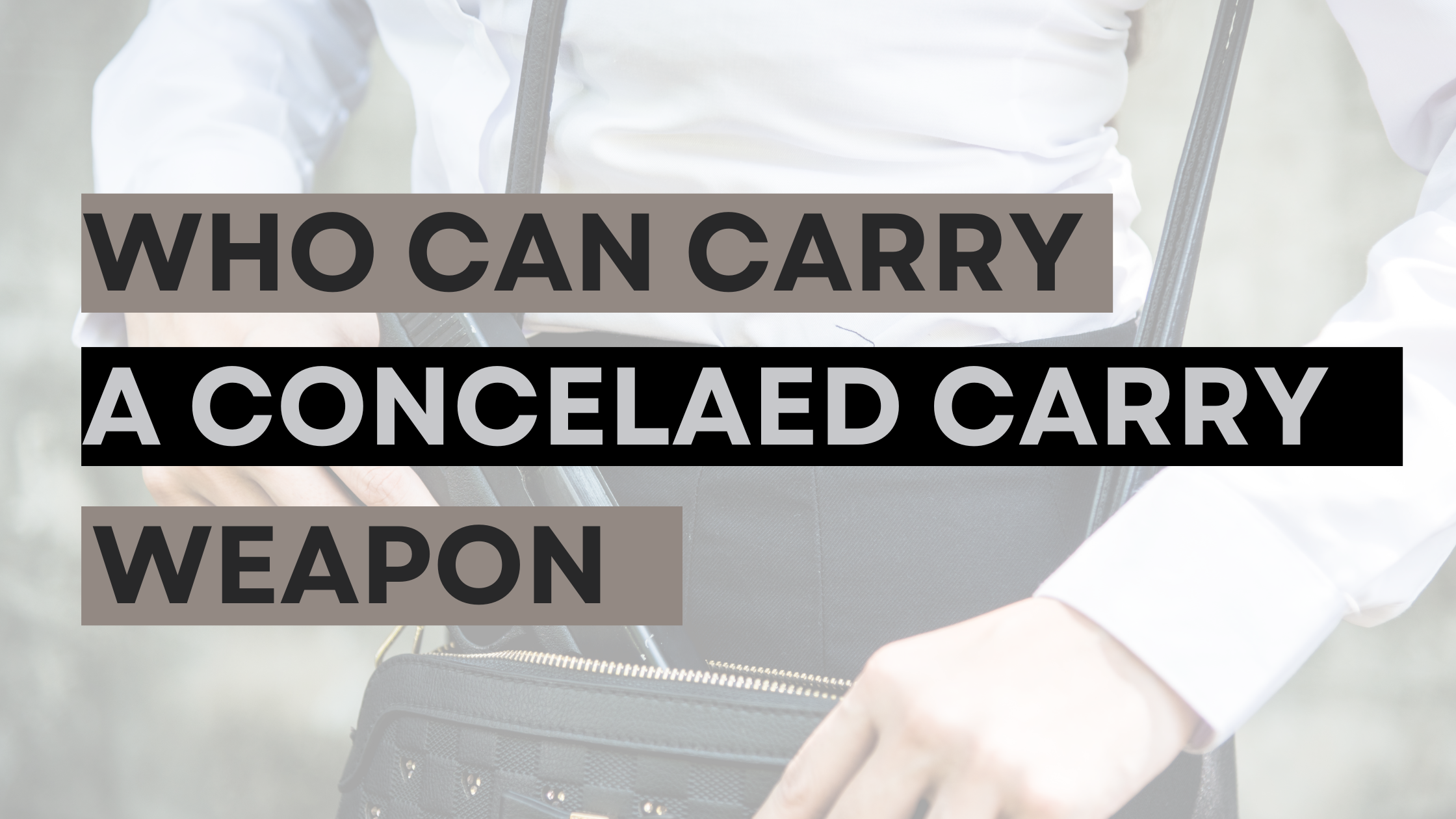Who Can Carry a Concealed Weapon Introduction
Carrying a concealed weapon comes with great responsibility, and not everyone is eligible to do so. Understanding who can legally carry a concealed weapon is essential for anyone interested in concealed carry. This guide will outline the key requirements, factors that determine eligibility, and what you need to know before you start carrying concealed.
Understand the definition and purpose of concealed carry here - what concealed carry means?
General Eligibility Requirements
Eligibility to carry a concealed weapon varies by state, but there are common requirements across most jurisdictions. Here’s what generally qualifies someone to carry concealed:
-
Age Requirements:
-
Most states require individuals to be at least 21 years old.
-
Some states allow individuals as young as 18 to carry, especially for active military members or veterans.
-
-
Legal Firearm Ownership:
-
You must be legally allowed to own a firearm under federal and state laws.
-
Individuals with felony convictions or certain misdemeanor offenses are typically prohibited.
-
-
Residency:
-
Many states require you to be a resident to apply for a concealed carry permit.
-
Some states offer reciprocity or non-resident permits.
-
-
Background Checks:
-
Applicants must pass a criminal background check to ensure they have no disqualifying offenses.
-
-
Mental Health:
-
Individuals with certain mental health conditions or a history of involuntary commitment may be ineligible.
-
For more details on what disqualifies someone, check out our blog on What Disqualifies You from Concealed Carry.
State-Specific Requirements
Each state has its own rules for concealed carry, falling into three main categories:
-
Shall-Issue States:
-
Permits are issued to applicants who meet the requirements.
-
States like Texas and Florida follow this approach.
-
-
May-Issue States:
-
Authorities have discretion to approve or deny permits, even if the applicant meets the criteria.
-
Examples include California and New York.
-
-
Permitless Carry States (Constitutional Carry):
-
No permit is required for eligible individuals to carry concealed firearms.
-
Examples include Arizona and Tennessee.
-
For specific information on permit requirements in your state, read our blog on what concealed carry permit to get.
Additional Qualifications
In addition to general and state-specific requirements, here are a few other factors that may impact your eligibility:
-
Training and Education:
-
Many states require completion of a firearms safety course or concealed carry training program.
-
Training often includes classroom instruction and live-fire exercises.
-
-
No Recent Legal Issues:
-
Certain recent offenses, like DUIs or domestic violence charges, may disqualify you temporarily or permanently.
-
-
Military or Law Enforcement Status:
-
Active-duty military personnel and law enforcement officers often have streamlined processes for obtaining permits.
-
Who Cannot Carry a Concealed Weapon?
To carry responsibly, it’s just as important to know who cannot carry a concealed weapon. Generally, the following individuals are prohibited:
-
Convicted felons (unless rights are restored).
-
Individuals with active restraining orders.
-
Those dishonorably discharged from the military.
-
People with a history of substance abuse or drug-related offenses.
How to Get Started
If you meet the eligibility criteria, here are the steps to begin carrying concealed:
-
Research Your State’s Laws:
-
Understand the specific requirements and restrictions where you live.
-
-
Complete Required Training:
-
Enroll in a certified firearms safety course if necessary.
-
-
Apply for a Permit (if needed):
-
Submit your application, pay fees, and undergo the required background check.
-
-
Choose the Right Equipment:
-
Invest in a reliable handgun and a quality holster designed for concealed carry.
-
Conclusion
Carrying a concealed weapon is a privilege that comes with significant responsibilities. By meeting the necessary qualifications and adhering to your state’s laws, you can carry with confidence and peace of mind.
Ready to take the next step? Learn about What Concealed Carry Permit to Get to find the right option for your needs. Remember, responsible carrying starts with being informed.

